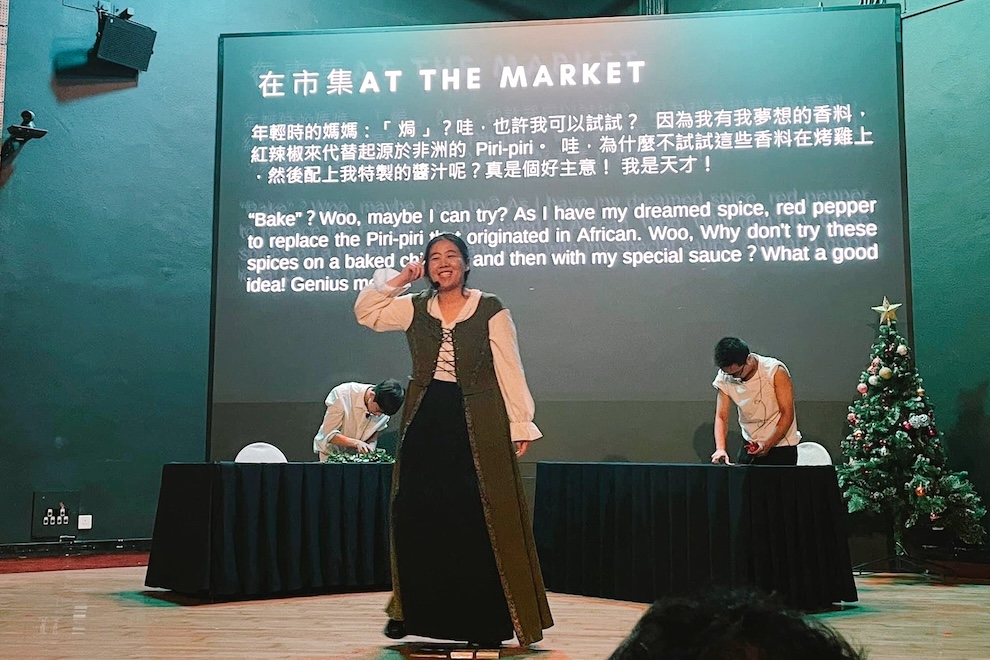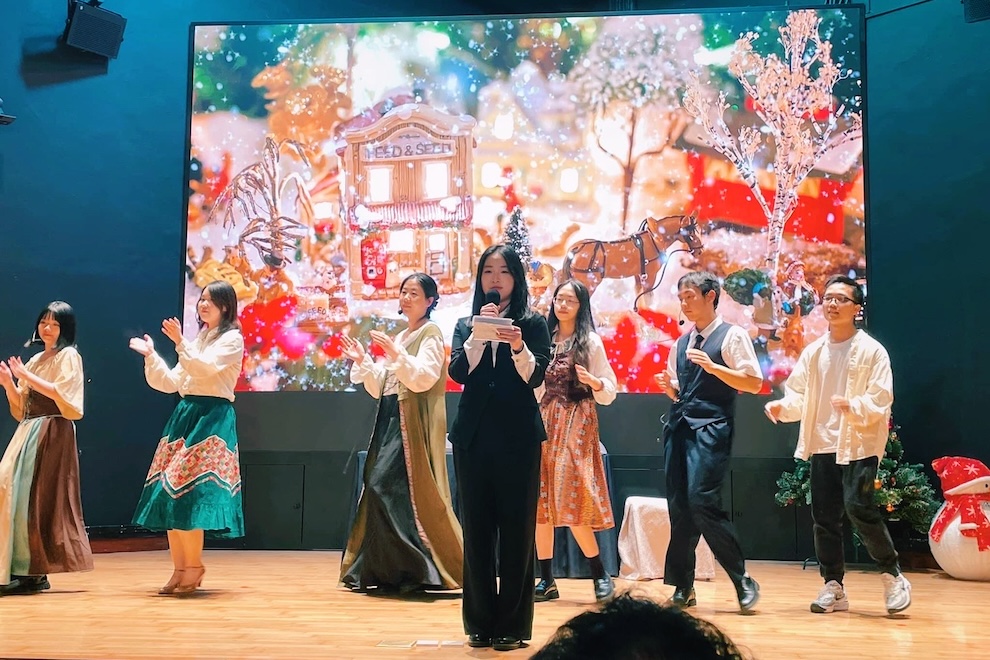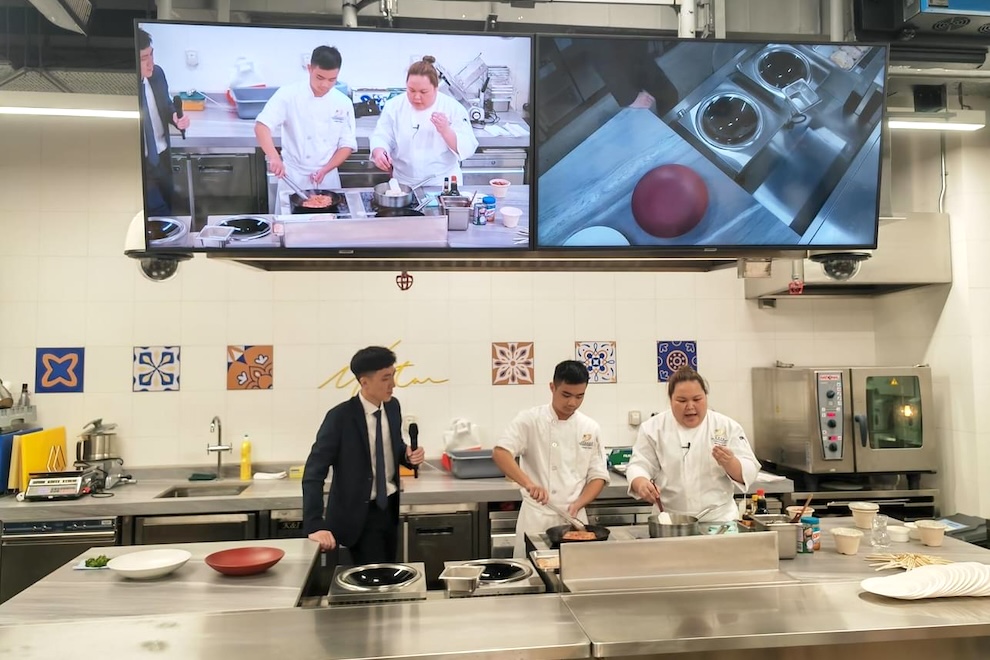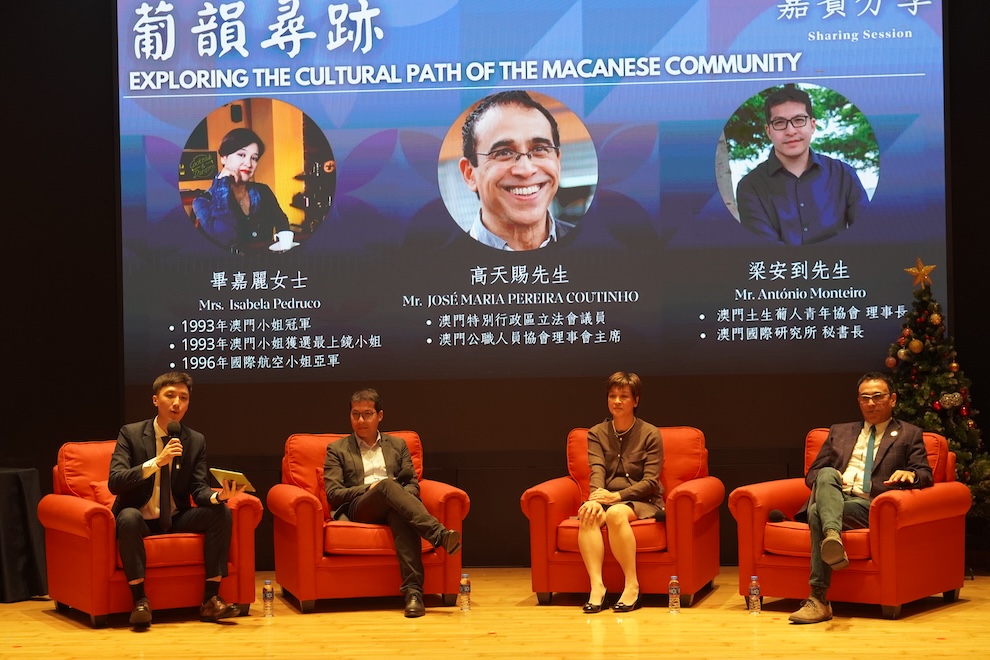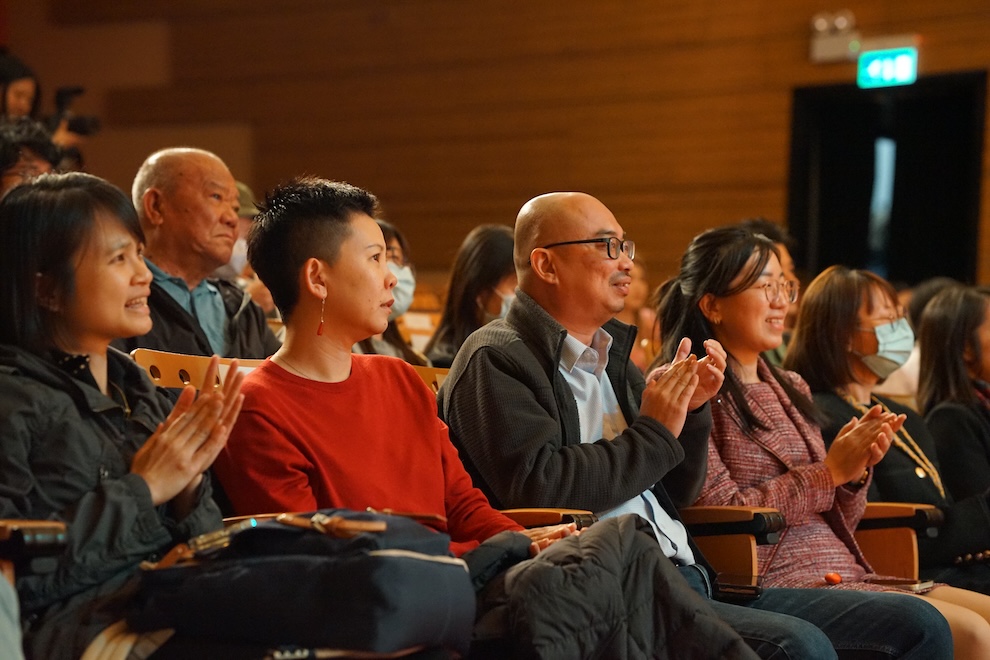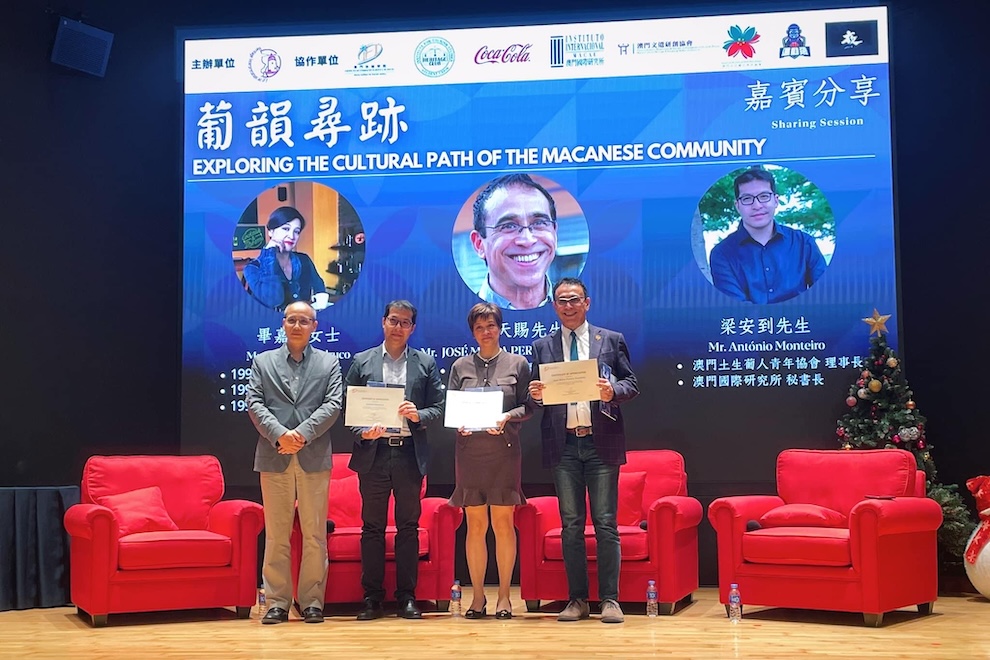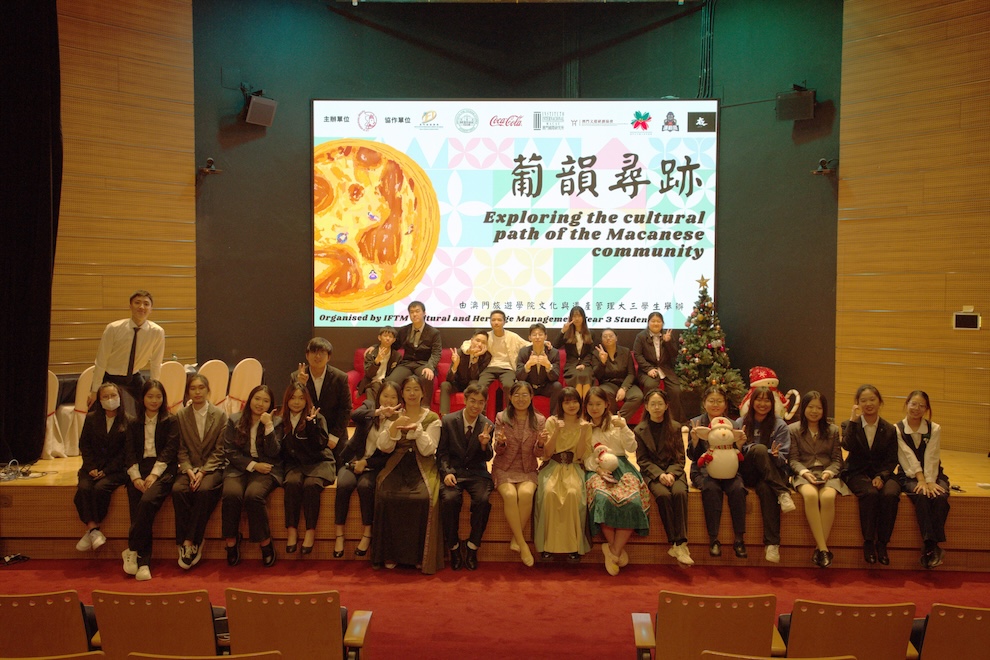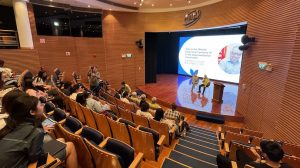Heritage Interpretation course students hosted an event promoting elements of Macanese culture, including the community’s unique cuisine and Patuá creole
There are countless pathways to decode the kaleidoscope of culture. A group of IFTM students recently took up that challenge, hosting a series of activities with the goal of promoting Macanese heritage.
The activities – including an exhibition, a dramatised presentation, a cooking demonstration, and an experience-sharing session – were part of “Exploring the Cultural Path of the Macanese Community”, a heritage-interpretation event. It was held on November 17 in the Grand Hall of IFTM’s Mong-Há Campus, and was organised by Year 3 students from the Cultural and Heritage Management Bachelor’s Degree Programme, enrolled on the Heritage Interpretation course.
The event attracted about 150 participants, including members of the public, and students and scholars from different education institutions.
“The value of cultural heritage can be conveyed and interpreted through different approaches, including verbal, written or visual communication,” says IFTM Lecturer Dr. Vicky Chen Zhaoyu, who is responsible for the Heritage Interpretation course.
“A key objective of the course is for students to tell the stories of heritage through organising a large-scale event, where they can put into practice what they have learned in the classroom,” adds Dr. Chen, who led a group of 23 students in preparing and organising the series of activities.
The word “Macanese” refers to Macao’s Eurasian population. They are people with ancestral ties to Portugal or the country’s former colonial outposts, such as Goa and Malacca, and to the Chinese Mainland. The Macanese consider themselves, and are adjudged by others, to have a distinct social and cultural identity.
Macanese gastronomy –which blends cooking methods and ingredients drawn from Portugal, China, Malaysia, the Indian subcontinent, and Africa – is inscribed in the List of Macao Intangible Cultural Heritage. It is also included in the National List of Representative Elements of Intangible Cultural Heritage. IFTM has been appointed by the Ministry of Culture and Tourism of the People’s Republic of China as the protection unit responsible for preservation and promotion of Macanese cuisine.
Patuá, a creole derived from Portuguese with linguistic features of Cantonese, English, and Malay, is another distinctive feature of the Macanese community. It is also featured on the intangible heritage lists at local and national levels.
East meets West
Within the many facets of Macanese culture, the IFTM students chose to spotlight its cuisine, the community’s Patuá language, and the city’s currency, the pataca.
“We feel that this culture might face risks of gradually fading and being less discussed by the overall community,” says student Carson Kou, project manager for the event. “Thus, we hoped that the overall local population could gain a deeper understanding of Macanese culture through our activities.”
He adds of the Chinese plus rest-of-world mix: “It is something we cannot find anywhere else in the world except Macao. We ought to preserve the uniqueness of this culture, including its content and inherent values.”
Putting their classroom knowledge into practice, Carson and his fellow classmates embraced the challenge of organising the event from scratch and bringing their vision to life. Tasks included brainstorming ideas, designing engaging activities, promoting the event, and executing the action plan.
Various activities were conceived, to introduce Macanese culture to the general public. One of them was a 15-minute drama that showcased dishes enjoyed by Macanese households during Christmas. The drama also incorporated Patuá dialogue and Portuguese folk dance.
The event additionally featured a cooking demonstration for two iconic Macanese dishes: minchi and African chicken. By witnessing the meticulous preparation of these dishes, onlookers gained a deeper understanding of their cultural significance.
Cultural diversity
Macanese community members were invited to share personal experiences and insights about their culture. Those taking part were: José Maria Pereira Coutinho, a Macao legislator; António Monteiro, the President of the Board of Directors of the Macanese Youth Association; and Isabela Pedruco, the winner of the 1993 Miss Macao pageant.
For Carson and his fellow classmates, the event was not only an opportunity to immerse themselves in Macanese culture, but also a chance to develop valuable skills for their future endeavours. “I have always been eager to try organising an event,” Carson says. “I’ve learned a lot of expertise and skills that I can apply to my future career.”
The impact of the event surpassed the expectations of Heritage Interpretation course leader Dr. Chen. “It successfully managed to involve the overall community, providing opportunities for 2-way communication and interactions,” she emphasises.
Despite the students’ lack of prior experience in organising events, everything ran smoothly, she remarks. “The feedback from the participants was very positive.”
“This event was able to pique the interest of the general public about Macanese culture and allow them to learn about the rich cultural heritage of the city,” Dr. Chen concludes.





